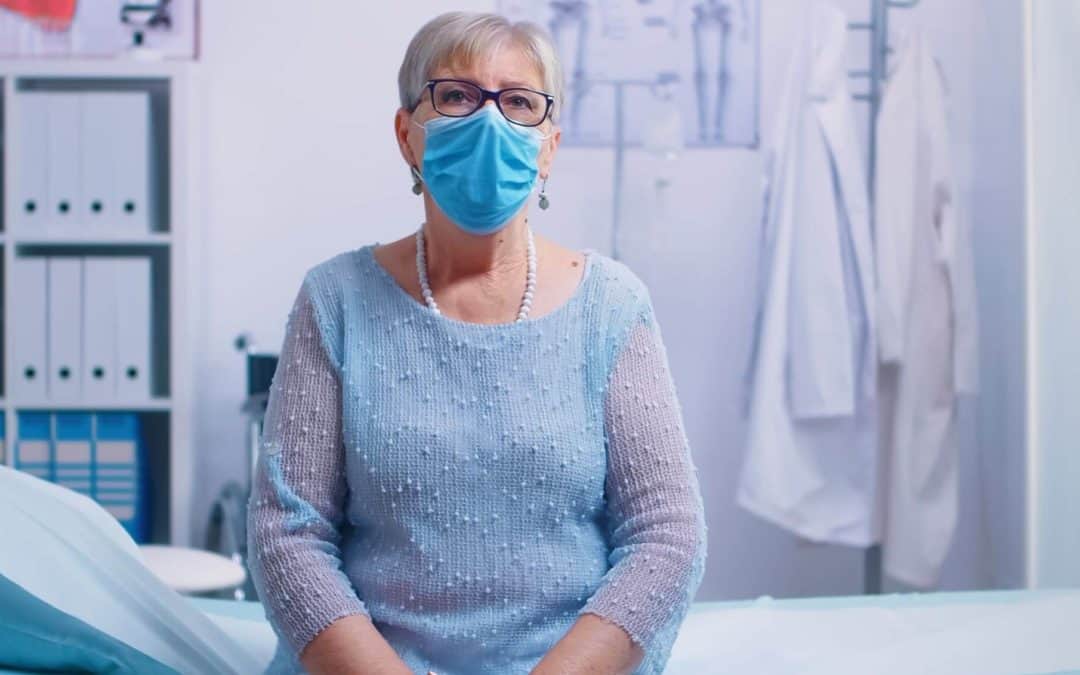We keep learning about new measures the government and the public institutions are putting in place to address the COVID-19 emergency. New PDPM updates are coming, cuts are being delayed, and financial requirements are being waived in favor of our healthcare system’s enforcement. Today we are talking with Sue Friesth about Coronavirus waivers to learn more about these changes and what they mean for SNFs.
We have interviewed Sue Friesth, NetSolutions’ Financial Product Manager, to walk through these updates and the coronavirus waivers CMS launched to help Skilled Nursing Facilities (SNFs) and their residents combat the challenges brought on by COVID-19.
This article will walk you through how the affected policies traditionally worked, what the waiver changes mean for your facility, and how you can properly bill your residents under the new conditions.
More specifically, the governmental waivers apply to two primary financial policies:
- The Qualified Hospital Stay
- 100-Day Benefit Period
Qualified Hospital Stay Waiver
Also known as the 3-Day Stay, this traditional Medicare policy requires the beneficiary to have a hospital stay of at least three consecutive days to qualify for Medicare coverage in a Skilled Nursing Facility.

How the CMS Waiver Changes the Qualified Hospital Stay Rules
The new CMS waiver implies that all residents requiring skilled care are eligible for the three-day inpatient qualifying hospital stay waiver benefit. The waiver applies to all residents because all hospitals nation-wide are being affected by the COVID-19 pandemic. Many hospitals can’t afford to host patients for the full three days, so Medicare now takes care of Skilled Nursing Facilities coverage.
Billing Under the Qualified Hospital Stay Waiver
All providers need to do when processing bills under the Qualified Hospital Stay Waiver to ensure their reimbursements include the condition code DR (Disaster-Related) in their claims.
100-Day Benefit Period Waiver
The Medicare benefit coverage traditionally only covers a new SNF resident for up to 100-days. When the 100-days period is over, Medicare won’t cover the resident’s care in the facility. Only after the resident hasn’t been a hospital or SNF inpatient during a 60 days break, the resident qualifies for another 100-day benefit period.
What the CMS Waiver Changes

The new CMS waiver enables residents to qualify for a one-time renewal of their 100-day benefit period. Since this is a COVID-related exception waiver, it comes with contextual conditions.
Residents are only eligible to extend their Medicare coverage with the 100-day waiver period if their healthcare is affected by the COVID-19 emergency while being an inpatient in a Skilled Nursing Facility. For example, this would include a resident contracting COVID-19 during their inpatient period in a facility or pandemic-related therapy treatment interruptions.
To determine if the resident qualifies for the waiver, the facility must compare the resident’s received treatment to what would have been provided if there was no COVID-19 emergency. If the two courses of treatment are precisely the same, then the waiver would not be allowed.
Billing Under the 100-Day Benefit Period Waiver
For billing purposes, when a resident is eligible for the waiver, the facility must follow the following instructions:
- Submit a final discharge claim with patient status 01.
- Readmit the beneficiary on day 101 to start the beneficiary period waiver.
- Complete a 5-day PPS assessment.
- Submit the new claims with the PDPM score from the new assessment. The Variable Per Diem schedule starts on Day 1.
- Use condition code DR.
- Use condition code 57 (readmission to bypass edits related to the 3-day stay within 30 days).
- Include COVID100 in the remarks to identify the claim as a benefit period waiver request.
- Make sure to fully document in the medical records that the skilled care meets the waiver requirements – this may be subject to post-payment review.
- Once the second 100-day benefit is exhausted, follow existing requirements for No-Pay claims until the resident is discharged. Benefits exhaust no-pay claims relating to the benefit waiver should include the condition code DR and “BENEFITS EXHAUST” in the remarks.
Other CMS Updates Announced
Medicare Sequestration Cuts
In addition to these two waiver updates, congress also passed the delay of the 2% Medicare sequestration cuts suspended through December 31st, 2020, in one of the early stimulus packages. Consequently, sequestration cuts will be further delayed until the end of March 2021.
PDPM Update on ICD 10 Codes
The CMS has also announced a PDPM update that will include new ICD 10 codes to adapt providers’ MDS assessments to the different types of COVID-19 infection preventionists can confront. The PDPM data specs have been updated to indicate when the codes are appropriate for item I0020B and to reflect the mapping of the new codes to clinical categories. The new codes can be used effective January 7, 2021.
Need More Guidance and Resources?
The following link provides guidance and resources for our Covid-19 vaccine and dashboard monitoring system to help your team manage the impact of the pandemic.
If you need further assistance, do not hesitate to contact NetSolutions support. We will update you on everything you need to know to keep your facility on track to effectively face new challenges.
Transcript
Peter Lewis
Hi there, my name is Peter Lewis, and I’m the director of marketing at Experience Care. I’m excited to interview our financial product manager. Sue was on with us a couple of months ago about an article with PDPM, and it was a huge success, and we’ve got lots of good feedback.
So I’ve asked her to join us today to talk about what CMS is doing to help SNFs in these tough times. More specifically, we’re going to dive into what’s happening with the waivers, which policies are being affected and being waved, and help you all walk through how to handle these claims. So explain to me what’s happening right now with the policies and walk me through this, please.
Sue Friesth
Sure. There are two policies that are being waived. Currently, there’s the Qualified Hospital Stay Waiver. And then there’s the normal three-day hospital stay required to come into the SNFs with SNF Medicare coverage.
The other one, that’s the other waiver in effect, is that they’re waiving the 100-day benefit period. Actually, I should say they’re extending the 100-day benefit period. When you come into an SNF, you get a 100-day benefit period for coverage. And then, normally, you would leave for 60 days, or you would break your coverage for 60 days to get a new 100 days. But with the waiver, you’ll get a new 100 days, right as soon as you’re done with the first 100.
To talk about the qualified hospital stay waiver. How it’s working with the waiver is that Medicare beneficiaries can enter a Skilled Nursing Facility under skilled care without the qualified three-day hospital stay.
Part of the reason why that actually applies to any of the residents coming into the facility who are requiring skilled care, the reason for that to be in place to everyone is because pretty much the whole country, all the hospitals and care facilities are affected by this emergency. So they don’t have the luxury of staying in a hospital for three days. But they need to get the residents out quicker. Although the residents still need care, they sometimes can’t be there for the full three days, which is required. With a qualified hospital stay waiver, all Medicare beneficiaries are covered under the waiver.
And when you do bill under the qualified hospital stay waiver, the thing you need to remember on your claims for a condition code you need to use the letters DR. Actually, I think Disaster Relief, maybe it means something along those lines. So that’s the qualified hospital waiver. It is just a little simpler, I guess.
Then the other one that we’re going to talk about, the benefit waiver.
Peter Lewis
Could you walk me through the benefit period waiver?
Sue Friesth
Sure. So like I said, normally, the residents come into the facility, they get 100-day Medicare benefit coverage. After the 100 days are done, if they need to stay in the facility, continue to receive care, it’s not covered by Medicare anymore. If they actually can leave the facility and go home and then either have a relapse or something else happens to them. If it’s been 60 days since the end of their Medicare coverage previously, then they would be qualified to get a new 100 days. So it’s called a breaking stay, the 60-day break. Under the waiver, residents may be eligible to receive a one-time renewal of their 100 day benefit period.
Now, this is not across the board for all Medicare residents and Skilled Nursing Facilities. If they need the extra days due to something to do with the COVID emergency, then they can get the 100 days.
A couple of examples are if you have a resident in the facility, she’s come in, and she’s getting skilled therapy because she had a fractured hip. While she’s in the facility, she actually contracts COVID. In that case, she is eligible for the 100-day waiver period, so she could get the extra 100 days because it is directly related to the emergency going on.
Another example might be that Mr. Smith came into the facility, kind of the same circumstances. He’s getting skilled therapy because he had a replacement of his hip. So he’s on therapy is getting skilled therapy services. But his normal therapy treatment schedule has been interrupted due to maybe the lack of staff available in the facility to do the therapy services. Maybe a lot of staff is off, unfortunately battling COVID themselves. So that would be another case where it would be allowed to use the waiver.
In another case that would not be allowed, Mary Jones comes into the facility, and she has a feeding tube. She continues to just have that feeding tube. Nothing in her treatment is affected by the COVID emergency. So in her case, when her 100 days are up, she does not get the additional benefit.
For billing purposes, if you have someone who is eligible for the waiver, on day 101 of their first 100 days, you actually submit a discharge claim with a patient status of 01, discharged to home. And then, you readmit the resident to start the new 100-day benefit period that they get. They’ll then complete another PDPM assessment to get an A score. If they can’t complete the assessment, they can continue to use the previous score. For some reason, if they can’t complete the assessment, but then after that, for the new 100-day benefit period, the claims would include the DR condition code, a condition code 57, and then in the remarks section of the claims, you would put COVID 100.
And on our blog with this interview, Peter, I’m gonna give you some billing examples. So we can also see that the one thing you want to do, you want to make sure, with the benefit period waiver, like I said, because there are exceptions to it, where people don’t automatically just fall under it, you really want to make sure that you’re documenting all the care that the residents are receiving. To make sure that they really are getting additional services or different services, actually, due to the emergency, some of these waivers, they may come in and have payment audits on them. So you do want to just make sure that you have all the paperwork.
And one of the tests, I think I’ve read that people were saying, if you look at the treatment that they’re getting now, and you look at what they would have been receiving, if COVID had never happened, if those are exactly the same, then those people really don’t qualify for the waiver.
Peter Lewis
Have you seen any of our facilities being audited? Or is this something that takes quite a while for them to catch up?
Sue Friesth
It’s probably gonna take a bit. I haven’t heard of any, but then again, you know, sometimes we don’t hear from the facilities, if it is happening, I think probably every, it may be a later thing that happens, you know, in the next few months or so.
Peter Lewis
So documentation is critical at this point, right?
Sue Friesth
Yeah, and documentation is always critical, you know? Just in general, for PDPM. In general, even in the normal world, they do always want to make sure that they’re documenting everything and capturing all the information to put in the MDS assessment to get the highest score possible. The highest reimbursement score.
Peter Lewis
Great. Anything else related to the waivers? Either the qualified hospital stay waiver or the benefit period waiver that the facility should be aware of when considering these claims or anything necessary or any small mistakes that you’re seeing that you’ve had to help clean up and walk our customers through?
Sue Friesth
Not really. Like I said, I mentioned the things about the billing and making sure that the certain codes are on the claims and that you’re, you know, filling everything out so nothing gets rejected and which then delays your payment.
And also, like I said, I will put some examples. We will get some examples of how the bills would look up on the blog, so you have an actual visual reference to it as well.
Peter Lewis
Perfect. So one of the comments, feedback that I’ve gotten from some of the facilities that have been following kind of your updates is: what else is happening with Medicare and SNFs? And what are other updates with PDPM that we should be aware of that are being affected because of COVID?
Sue Friesth
Yeah, there are a couple of things that have fairly recently been announced. There will be an update to the PDMP, the MDS, for the new ICD 10 codes that go into effect on January 1st. We have some. I think there are six new ICD 10 codes for the COVID, different types of the COVID 19. So, Medicare or CMS will be putting out an update that vendors would use to get all that information in so when the MDS assessment is calculated, it takes all those things, those new pieces, into consideration as well.
CMS has not published that yet. So everybody’s raving. They’re publishing it very soon.
Peter Lewis
And then we can update this blog and include all those links, as those things start to come out and get it.
Sue Friesth
Yeah. And so, as soon as they update that, I know all the vendors will be scrambling to get the update for that. CMS is asking that you don’t use those new ICD 10 codes on MDS assessments until they are announced. So it may happen that you actually have some after January 1st that can’t use the new codes.
Peter Lewis
Okay. And in relation to kind of going back to the waivers in terms of timeframe and expiration dates and changes, we don’t really have any idea of what the future holds. They’re right?
Sue Friesth
Correct. I haven’t really seen anything definite on that. One other thing that has happened that will happen is the 2% sequestration reduction that Medicare payments had been deducted off Medicare payments to the facilities was supposed to expire December 31, 2020. That has been extended to March 31st. Unless other things change as well, that 2% sequestration amount will start to be deducted from your payments again.
Peter Lewis
Fantastic. And if you are a customer of our EHR NetSolutions, and someone needs help with these bills and codes, they should reach out to support or reach out to their account manager. How are we helping our facilities through this?
Sue Friesth
They should reach out to support. We’ll have some documentation available. We have on our clients-only website. We have quite a bit of documentation. Additionally, we’ll have examples of the claims on the blog, but support is always there to help them.
Peter Lewis
Sure. And I know that support is always doing videos of how to walk through the workflow.
Sue Friesth
Yeah, we’ll have quick bites, probably. And when we do have quick bites and some of these, if we determine, we want a quick bite on this, these particular nuances of the billing for the waivers. We’ll get those out there.
Peter Lewis
And we’ll be sure to publish it on this blog in this interview. Thank you, Sue. Is there anything that I didn’t ask that facilities would want to know about and be asking you if they could be on this call?
Sue Friesth
They’d probably asked me a lot of things as why CMS does what they do. I don’t have the answer for that one. So I think I’ve kind of covered what CMS has announced recently.
Peter Lewis
So great. Thank you Sue, for your time. And we really appreciate it, and I know from the feedback from people who have been commenting and sharing these and sharing it with support. I know that your feedback and all of your knowledge have been really helpful. Thank you so much for your time and I look forward to talking to you again.
Sue Friesth
Thank you.

